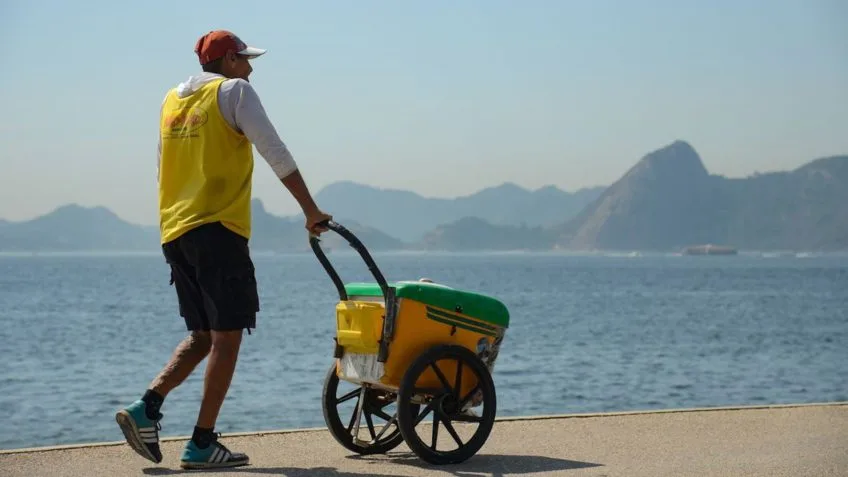On Saturday, November 18, Rio de Janeiro experienced its hottest day of the year, reaching a scorching 41.9ºC at noon.
This temperature was the highest recorded by the National Institute of Meteorology (Inmet). They measured it at the Marambaia station in Rio’s western zone.
Moreover, a new peak in the heat index was observed. In Guaratiba, also in the western zone, it reached 59.7ºC.
This occurred early in the morning at 8:10 AM. AlertaRio, the city’s monitoring system, reported this record.
Just a day earlier, on Friday, November 17, Guaratiba experienced a heat index of 59.3ºC. This value was the highest since AlertaRio started operating in 2014.
Inmet suggests that Rio might break this record yet again on the same day. Temperatures were expected to climb even higher.

Rio is on high alert for potential thunderstorms through Sunday, November 19. These weather conditions are due to an approaching cold front.
This front could cause strong winds of up to 100 km/h in the Southeast region.
Background
Continuing with the context, Rio de Janeiro’s record temperatures are part of a broader trend of increasing heat in urban areas.
Experts attribute this to climate change and urbanization, which often results in higher temperatures in cities compared to rural areas.
The phenomenon, known as the urban heat island effect, exacerbates heat in densely populated areas.
Historically, Rio has experienced rising temperatures over the past decades. This aligns with global patterns of climate change.
In this context, Rio’s recent record-breaking heat is not just an isolated incident but a reflection of a larger global issue.
Comparatively, other major cities around the world have also reported similar trends in rising temperatures.
This benchmarking against global data underscores the need for comprehensive strategies to combat climate change.
It highlights the importance of sustainable urban planning to mitigate the urban heat island effect.
In conclusion, Rio’s recent temperature spike serves as a stark reminder of the ongoing challenges posed by climate change.
It stresses the urgency for both local and global actions to address these environmental concerns.

